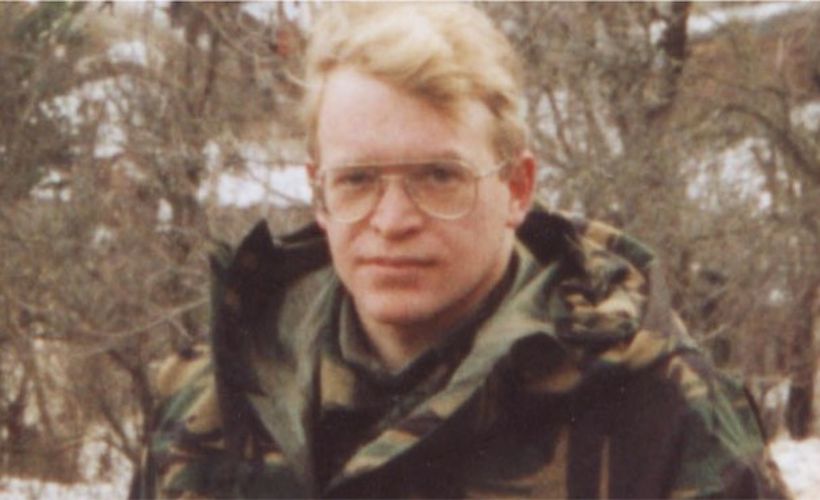Updated on
David Dent MBE, 55, lives in Carluke, South Lanarkshire. He was in the British Army and his tours included Bosnia with the UN and Northern Ireland. He specialised in Intensive Care and Military Trauma, so was on the battlefield carrying out emergency trauma care for those in need.
He left the Army in 2000 after being involved in a blast injury in 1994 in Bosnia from a surface to air missile that resulted in shrapnel injury, and a brain injury that became more complicated as time went on. He then had a traumatic back injury when providing medical cover for bomb disposal. He damaged his lumbar spine and his neck, and this has left him with severe chronic pain. He has also been treated for post-traumatic stress disorder (PTSD) and the associated symptoms, such as anger, anxiety and depression. PTSD never really goes away.
David feels that when he sees veterans on TV, especially in drama programmes, there are unhelpful negative connotations. All too often they are portrayed as someone who has got a problem and this can create a degree of unconscious bias in some employers. This makes them feel that there could be a risk to employing veterans as they are worried that they may be off sick all the time, or may start ordering people around. It’s something he’s seen happen a lot and it means that misconceptions around veterans lead to there being a higher threshold that they have to get across in order to get a civilian job – and yet organisations that employ veterans see huge value in doing so.
He says, “There's a segment of television and media that will portray people in a negative light. They tend to portray veterans as someone who has got a problem, and I think this creates a degree of unconscious bias in some employers, health care professionals, social services and society in general.
“It makes them think, do we want to take the risk of taking this person on, will they be off sick all the time, will they start ordering people around? I see this happening all the time. It's almost like there's a higher threshold to get across there, but then once veterans are in employment, organisations that employ them really see the value.
“Quite often when I see veterans on television, particularly in drama programmes, I think there's a really unhelpful negative connotation. I think there's a broader idea around people with disability in general, where it's either hero or zero, when actually most people are in the middle somewhere.
“There are lots of people with hidden disabilities, such as post-traumatic stress disorder. Organisations increasingly need to pay attention not just to diversity, equity and inclusion across the board, but specifically focus on disabilities of all kinds because this is one of the most under-supported areas in employment.”







